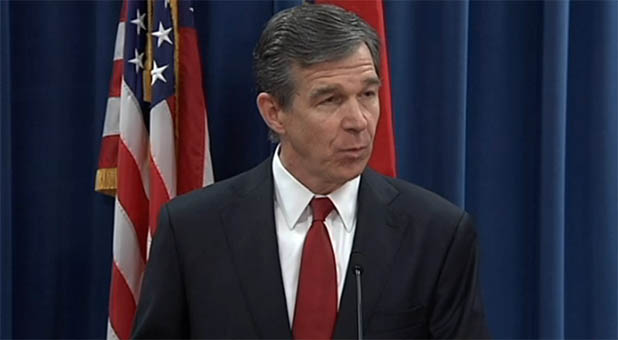The Assault on Evangelicals’ Religious Freedom Continues
The all-out assault on your religious freedom—and by extension, every other American’s—continued this week with two new developments in North Carolina and Louisiana.
First, in North Carolina, where the Republican-controlled legislature approved a bill that prohibited cities from enacting “transgender bathroom bills,” and Gov. Pat McCrory, also a Republican, signed it into law. That bill, House Bill 2, is now being challenged in federal court by LGBT activists while the state faces boycott threats similar what Georgia recently experienced.
Tuesday, Attorney General Roy Cooper, a Democrat who will be challenging McCrory for the governorship in November, announced he would not defend the new law in court. Calling it discriminatory and unconstitutional, he railed against Republicans who adopted it during a press conference.
“Not only is this new law a national embarrassment, it will set North Carolina’s economy back, if we don’t repeal it,” he said. “And that means there will be a negative impact on innocent people who work hard every day and pay taxes. They don’t deserve to lose money because of this. They deserve better.
“We know that businesses here and all over the country have taken strong stances in opposition to this law and that convention and sporting event organizers are rethinking their plans. The threats to our economy will grow even darker the longer this law stays in effect. It will also cause a flood of litigation—the first case having been filed yesterday.”
The reason Cooper gave for refusing to defend HB 2 is certainly unique. He says his office implemented its own discrimination policy, outside of North Carolina law, that includes both sexual orientation and sexual identity as protected classes.
“I believed in 2001, when we adopted it, and I believe now that our policy is not only the right thing to do, but it is a necessary and vital signal to send as we recruit and retain the best and brightest employees here,” he said. “Many of the top law firms in our state provide these protections and we needed to as well. I made a promise. Employees who get the job done here should be welcomed without fear of discrimination.”
Not only is HB 2 in “direct conflict” with Cooper’s policy at the North Carolina Department of Justice, but also with similar policies implemented by the State Treasurer’s Office. He said the Treasurer’s Office has requested his office to defend it from the new law, and he has agreed to do so.
He said he will encourage the defendants in the case brought by the North Carolina Civil Liberties Union and Lambda Legal to get their own legal representation.
Meanwhile, in Louisiana, Gov. John Bel Edwards has made it clear he intends to do away with a key protection for pastors that his predecessor, Bobby Jindal, put in place. Last year, following the U.S. Supreme Court’s opinion in Obergefell v. Hodges, and the state legislature’s inability to pass the Marriage and Conscience Act, Jindal issued an executive order that effectively did most of what the act would have required.
As has been noted by at least one Republican presidential candidate, however, any act taken by executive action can be removed quickly by executive action. Edwards has pledged to rescind Jindal’s order with one of his own, which his office said this week is in the final stages of being drafted.
Like Georgia, Louisiana has become a top shooting location for Hollywood films. In fact, it’s the top location in the U.S., which has earned it the moniker “Hollywood South.”
“Governor Edwards will issue the executive order, but it is in the drafting stage,” his press secretary, Shauna Sanford, told the entertainment industry news website deadline.com. “As far as Jindal’s religious liberty order, the governor intends to rescind it in the near future.”
















































